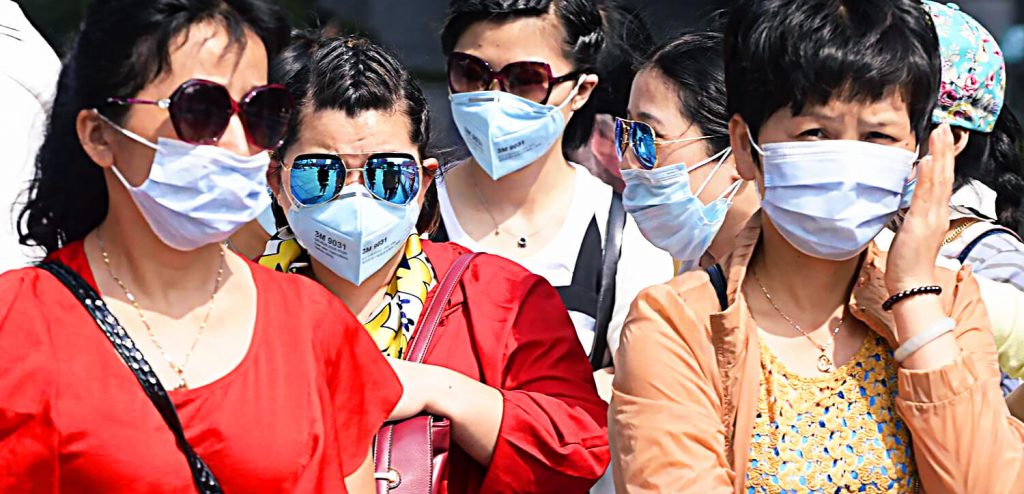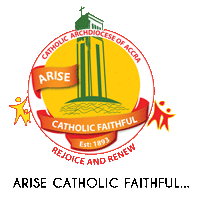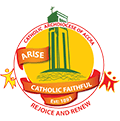
Our Ref: GBC .2/02-20/0 I 28th February. 2020
ALL ARCHBISHOPS ALL BISHOPS
Dear Brother Archbishops and Bishops,
I send you warm Lenten Season greetings from the, Presidency of the Conference.
Upon consultation with the Health Directorate of the National Catholic Secretariat, I wish to send you this information on the New Coronavirus infection which the World Health Organization has declared a Pandemic. I do so with the hope that you will share with your f1ock for their health and wellbeing.
Introduction
The World is facing life threatening increases in infections with COYID-19. COYID-19 means Coronavirus December 2019. Global figures arc souring at over 80,000 with about
2000 deaths and increases are recorded by the hour. With Nigeria confirming a case of COYID-19 on 27th February 2020, the number of countries that have reported cases rises to forty-eight (48) including three African Countries. In Ghana it is reported that nine (9) cases have been suspected and all tested negative.
Coronaviruses are a family of viruses that are known to cause illness ranging from common cold to more severe diseases such as Middle East Respiratory Syndrome (MER ) and Severe Acute Respiratory Syndrome (SARS). Several known coronaviruses circulate and cause disease in animals. A spill-over event occurs when a virus that is known to circulate in animals is found to have been transmitted to humans due to increased contact between animals and humans. COYID-19 is a novel Coronavirus that was first confirmed in Wuhan Province China following reports of a series of cases of pneumonia. The disease has since spread to involve others including family members and health workers and spread outside China. Even though the infection hasbeen linked to the animal market in Wuhan, the animal source is yet to be identified.
How is it spread?
Respiratory viruses are u ually spread through droplets when an infected person coughs or sneezes or when one comes in contact with something that has been contaminated with the virus. Everybody is at risk of infection, however people most at risk are those in close contact with animals such as live animal market workers and those who are caring for people infected with the virus such as family members or healthcare workers.
How do I know I have the infection?
From what is known so far, symptoms range from mild to severe; there may be fever and respiratory symptoms such as cough, sneezing and shortness of breath. In severe cases, there could be pneumonia, kidney failure and death. Even though a number of deaths have been recorded, the mortality rate is not known yet.
How can one be diagnosed?
The infection can be diagnosed by a test called PCR, or Polymerase Chain Reaction. This test identifies the virus based on its genetic fingerprint. In Ghana. The test can be done at the Nugochi Memorial Institute for Health Research in Accra.
Is there treatmentfor COVID-19?
Currently, there is no specific treatment for this virus so treatment is supportive. And there is currently no vaccine to protect against it. Treatment and vaccines are still in development.
How should I protectmyself from getting COVID-19?
There is no need for panic.
1. Clean hands frequently by using soap and water or alcohol-based hand rub.
1.1 When hands are visibly dirty, wash hands with soap and water for at least 30 seconds under running water and wipe your hands dry.
1.2 When hands are not visibly dirty you could use an alcohol-based hand rub for 20 seconds or wash hands with soap and water.1.3 Avoid touching your eyes, nose and mouth with unwashed hands and after touching a sick person or surface that could be contaminated.
2. When coughing and/or sneezing cover mouth and nose with flexed elbow or tissue – throw tissue away immediately and wash hands with soap and water.
3. If you have fever, cough, sneezing, sore throat and/or difficulty breathing, seek medical care early and share previous travel history with your health care provider.
3.1 Talk to your health care provider about your travel history- all places you have visited recently.
3 .2 Infof them if you have had close contact with a person with suspected or confirmed infec ion or a person who has travelled outside the country recently.
3.3 Inform them if you have visited an animal market or consumed animal products.
3.4 If possible, isolate yourself or avoid contact with family members when you have any of these symptoms.
4. Keep a distance of at least one step ( one meter) from a person showing signs of fever, coughing, sneezing and difficulty in breathing.
5. Physical activity is key, drink a lot of fluid, cat well, reduce stress and have enough sleep.
6. As much possible avoid these, crowded areas, shaking of hands, hugging, touching of objects unnecessarily in public areas such as side rails.
If you need any help on COVID-19, call these National hotlines:
0244417911
0244643142
0201210117
We commend the health of our people to the intercession of our Blessed Mother Mary. With prayerful wishes for a fruitful Lenten season, I remain,
Yours fraternally,

